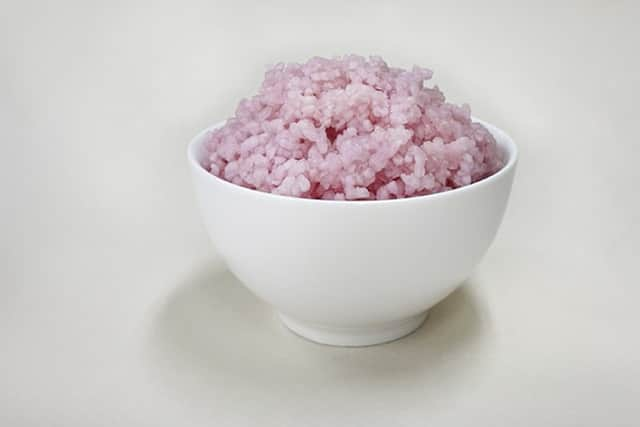Would you try this? Scientists grow beef-rice hybrid in bid to develop more eco-friendly protein source
and live on Freeview channel 276
A brand new lab-grown beef and rice hybrid could cut both costs at the till and emissions, but experts say the real test is whether consumers will bite.
South Korean scientists have grown beef cells in rice grains for the first time, creating what they describe as a “nutritious and flavourful hybrid food”. Their research, published this week in science journal Matter, suggests that the cultured beef rice could offer a more affordable protein food source, with a smaller carbon footprint.
Advertisement
Hide AdAdvertisement
Hide AdThe scientists claim their hybrid rice has 8% more protein and 7% more fat than regular rice. But for every 100 grams of protein produced, the hybrid rice is estimated to release less than 6.27kg of carbon dioxide - a whopping eight times less than beef, which releases 49.89kg. On top of this, they say if it was to be commercialised, it could be produced and sold for one-sixth of the price of beef, at £1.77 per kg as opposed to £11.85.


Sohyeon Park, of Yonsei University in South Korea, told PA: “We usually obtain the protein we need from livestock, but livestock production consumes a lot of resources and water and releases a lot of greenhouse gas. Imagine obtaining all the nutrients we need from cell-cultured protein rice," she added.
To make the hybrid rice, the researchers first coated it with fish gelatine to make it easier for beef cells to latch on. They then added cow muscle and fat stem cells to the grains and left to culture in the petri dish for up to 11 days. The researchers claimed their cell-cultured beef rice met food safety requirements, and had a low risk of triggering food allergies.
Ms Park continued: “I didn’t expect the cells to grow so well in the rice. Now I see a world of possibilities for this grain-based hybrid food. It could one day serve as food relief for famine, military ration or even space food.”
Advertisement
Hide AdAdvertisement
Hide AdCommenting on the research Neil Ward, an agri-food and climate specialist at the University of East Anglia, added: “There has been a surge of interest over the past five years in developing alternatives to conventional meat with lower environmental impacts. This research suggests the possibility of a hybrid rice which provides animal nutrients that involves almost eight times less greenhouse gas emissions and at less than one sixth of the cost."
But he told PA while this line of research held promise for developing healthier and more climate-friendly protein, another critical test was around the public's appetite for lab-grown foods.
This comes at a time when slashing greenhouse gas emissions is increasingly in the spotlight, with the world just experiencing its hottest year on record. Many, including the likes of David Attenborough, have taken aim at animal agriculture for both its emissions, and impact on nature - endorsing shifting towards more plant-based diets.
A major University of Oxford study from last year also found that meat-free eating had a substantially lower environmental impact across metrics including land use, water pollution risk, water use and biodiversity loss - and produced just a quarter of the greenhouse gases of high-meat diets.
Comment Guidelines
National World encourages reader discussion on our stories. User feedback, insights and back-and-forth exchanges add a rich layer of context to reporting. Please review our Community Guidelines before commenting.
